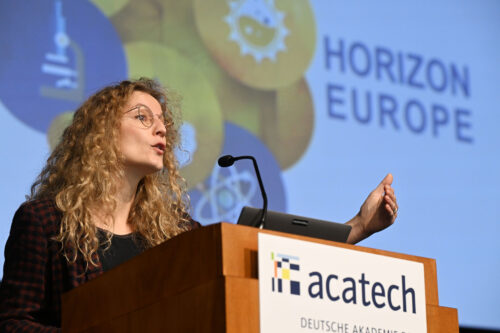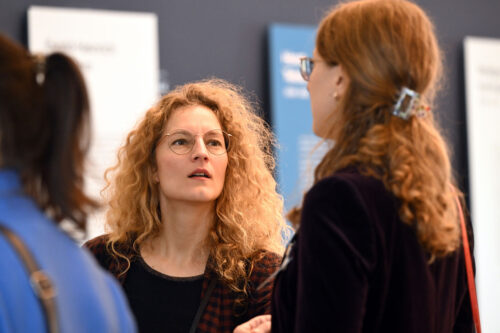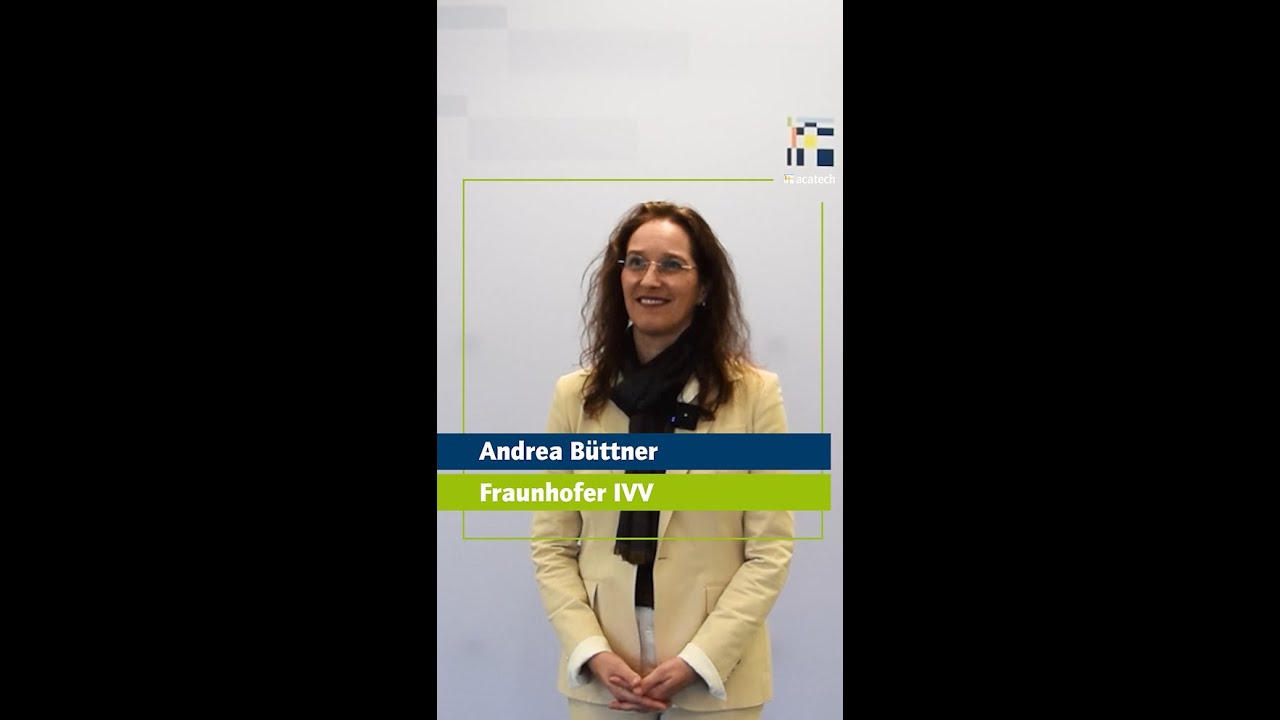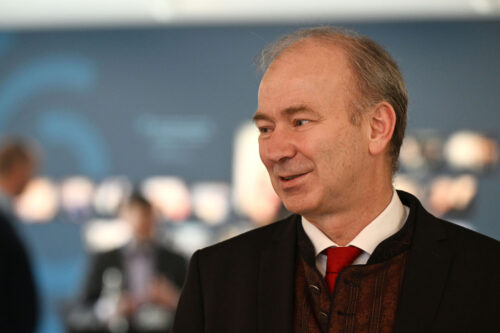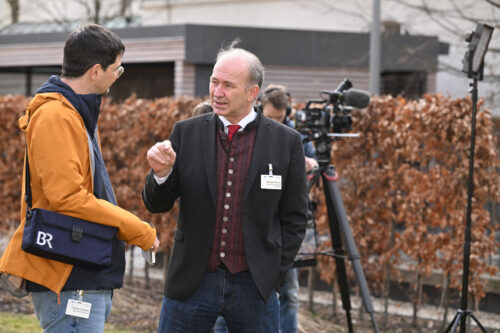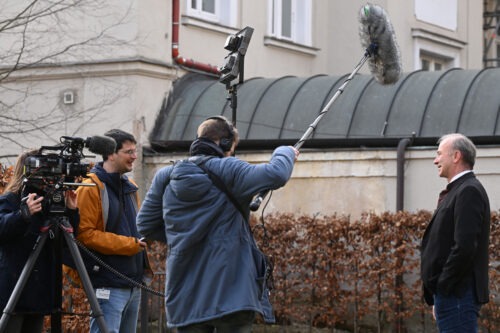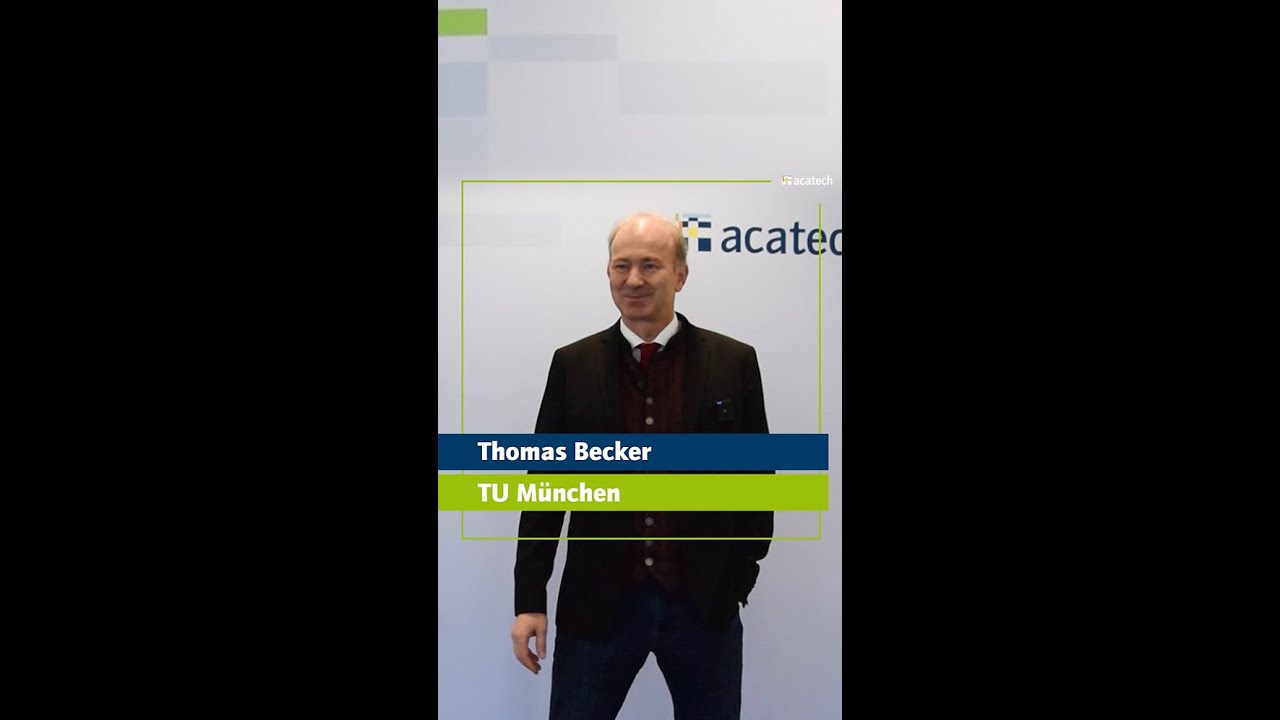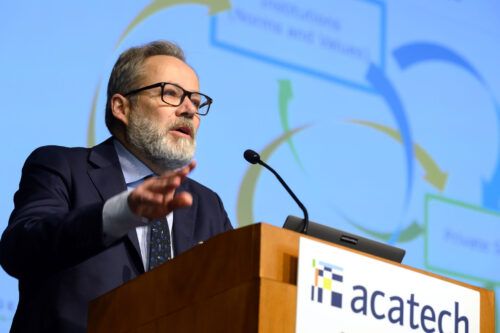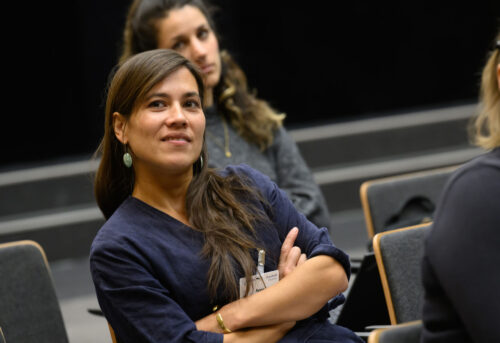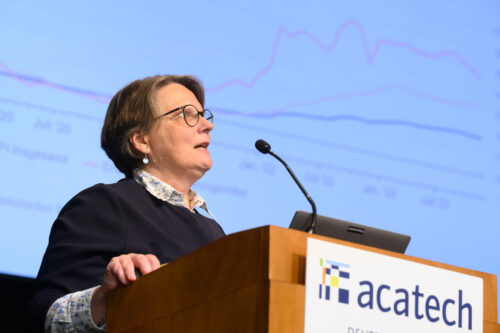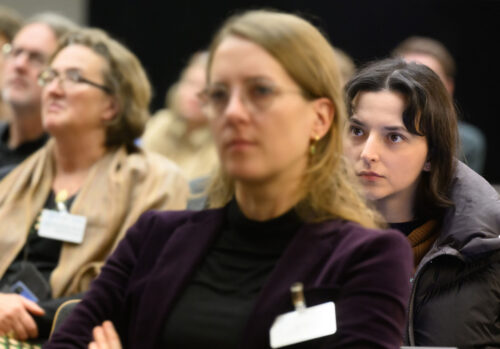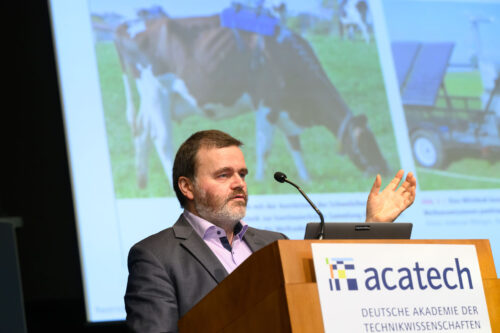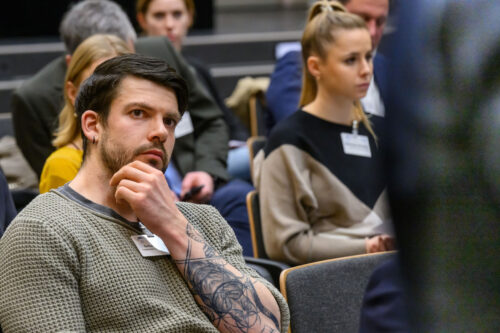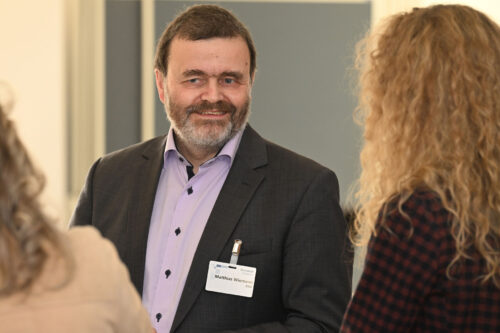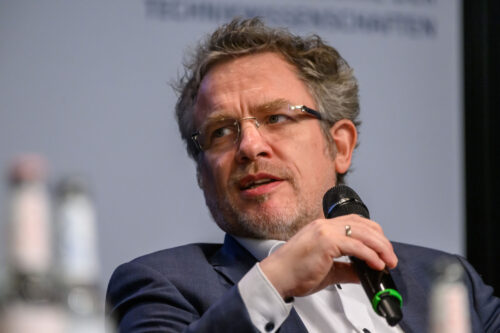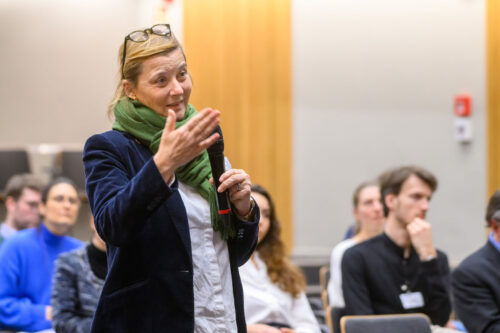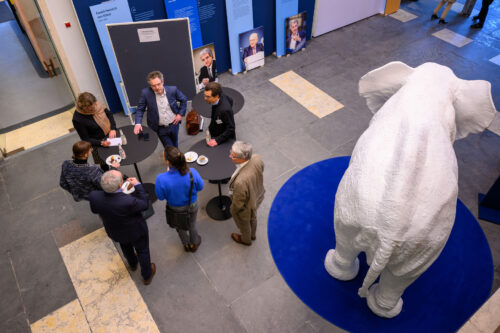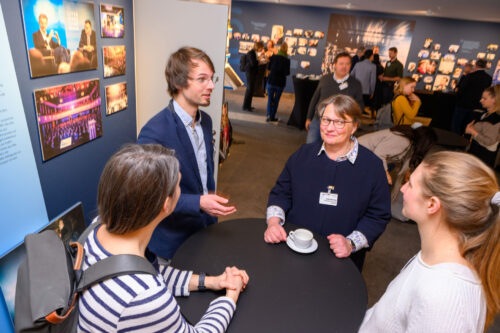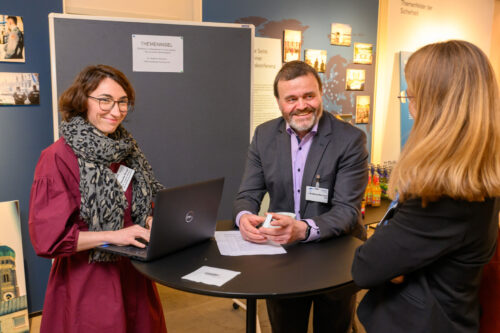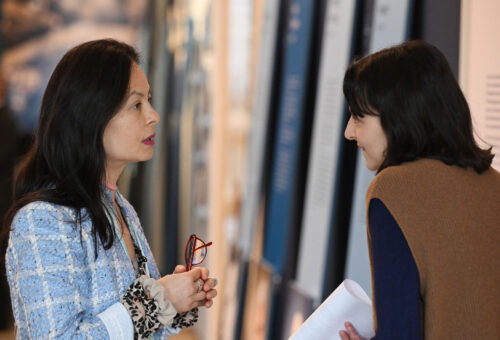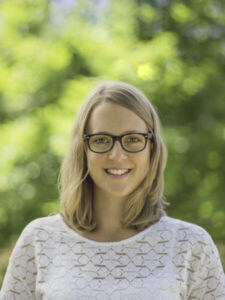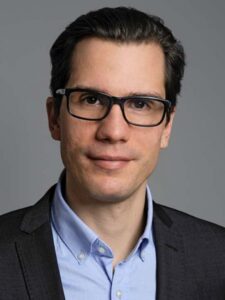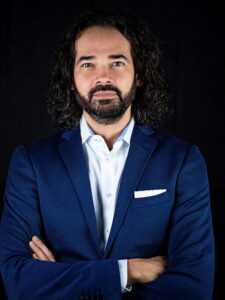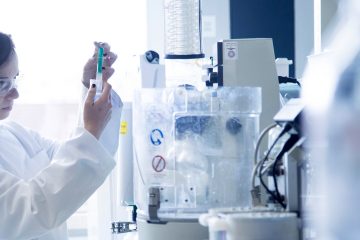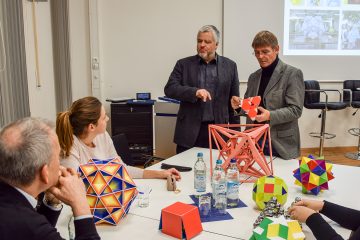Food for thought – rethinking the future of nutrition
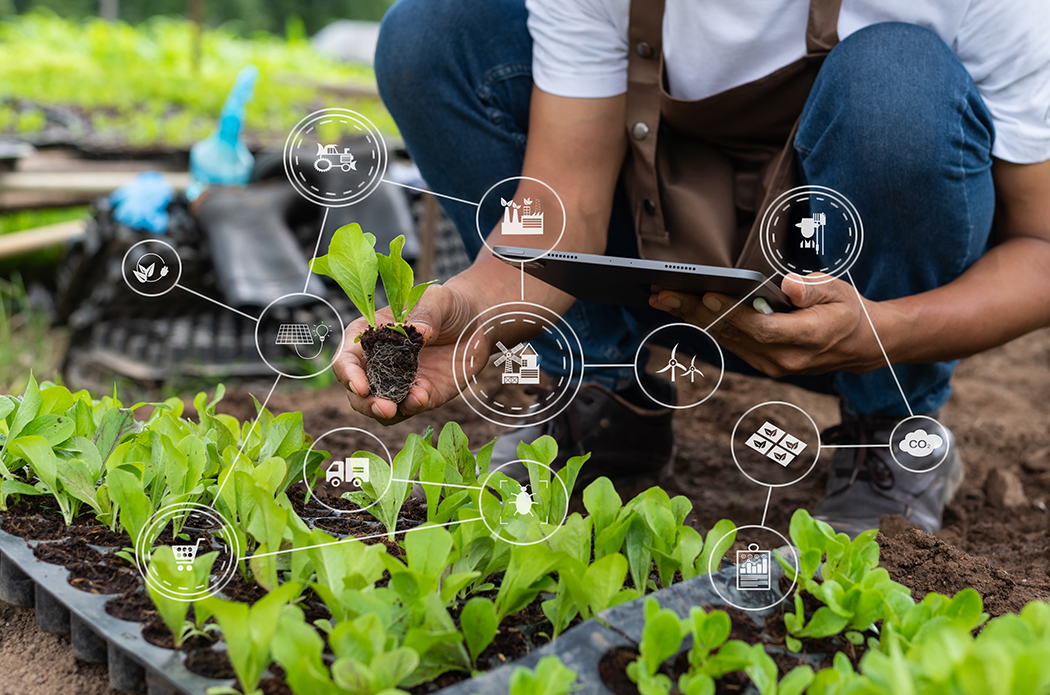
Munich, 07 February 2024
Energy transition, demographic change, resource scarcity, global crises and conflicts – the design of a future food system must take numerous influences into account in order to function resiliently and sustainably for future generations. But which technological developments can help to implement sustainable solution scenarios?
The global challenges that food systems will face in the future are just as diverse as the questions they pose. acatech President Jan Wörner emphasised this challenging starting point in his welcoming address to the acatech Food Systems conference at the Amerikahaus in Munich.

“The Sustainable Development Goals of the United Nations are important points of reference that play a role in the orientation and design of food systems. But the technical aspects are also crucial. Especially when it comes to how concepts for expanding sustainability, resilience and security of supply can be introduced into the food market. This is where acatech can help accelerate the transfer with joint projects and thus pave the way for a future-orientated food system,” says Jan Wörner.
Listen to the BR podcast on the Food Systems conference here (in German):
Click on the button to load the content from www.br.de.
“We should think and act across thematic networks.”
In her welcoming address, Andrea Robitzki from the Karlsruhe Institute of Technology (KIT) also focussed on the geopolitical crises, which made it necessary to work together on future scenarios. According to Andrea Robitzki, eating habits will change.
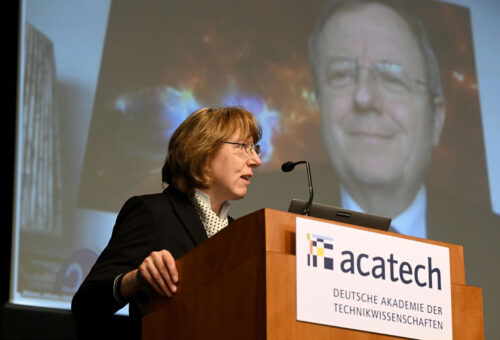
New crops, new concepts for land utilisation, new food raw materials – and last but not least, new technologies: This should be at the centre of the development of a food system in the future. An important point to get into application: How can all players in the food system succeed in working together on an interdisciplinary basis? In other words, first focussing on the most important areas of responsibility, dividing them up clearly and then orchestrating them.
“We want to get everyone on board and shape the future of food together.”
Daniela Lüth, DG Research European Commission, opened the event by outlining the European perspective on food systems. Food 2030, the EU’s research and innovation policy framework, is intended to define what research in the food system can look like. Her strategy is to include all factors that have an influence on food systems. Not only health plays a role, but also climate neutrality, circularity and innovations at local level are important, says Daniela Lüth.
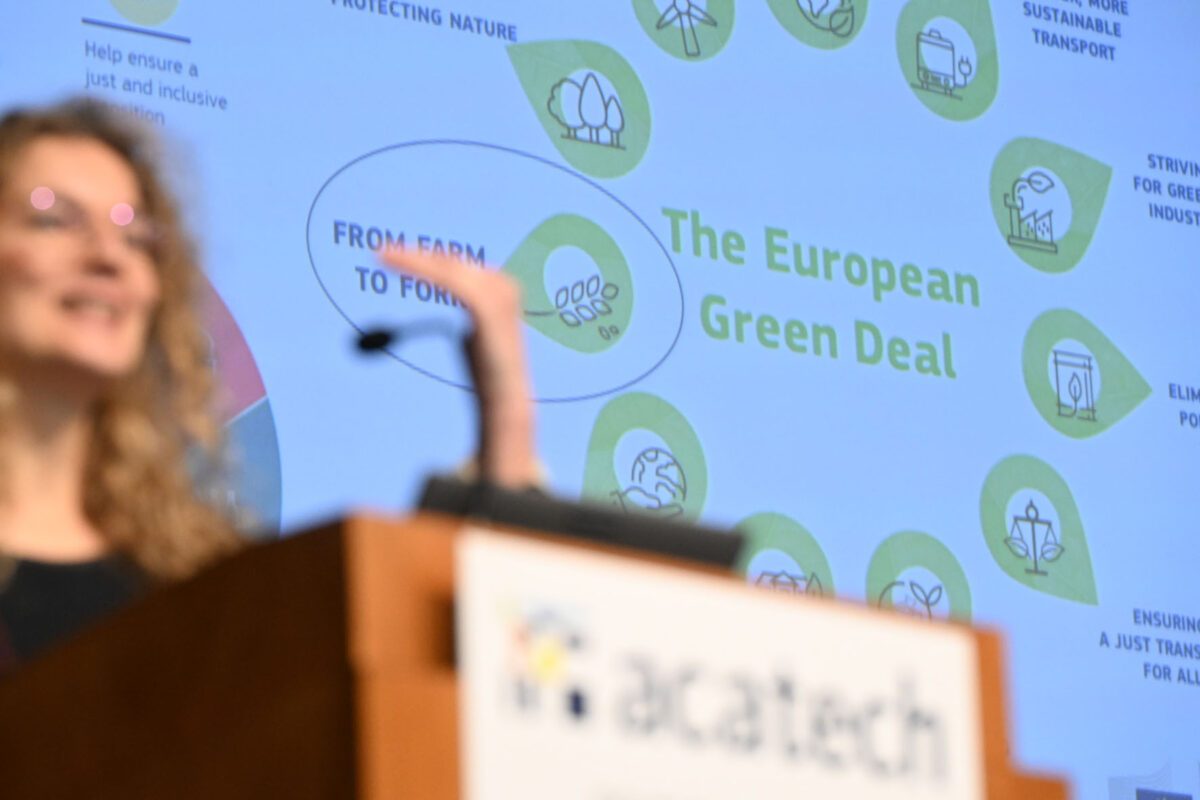
One tool for involving people directly in this transformation: Living labs, i.e. real-world laboratories that integrate citizens into the process at a local level.
It is important here to communicate in an understandable and comprehensible way – at school and in all other areas of life. This is the only way to promote acceptance of the gains resulting from changes in the food system.
“We have to think the unthinkable.”
Anticipating more, thinking through possible development scenarios: this is an important task in shaping the future, says Andrea Büttner, Director of the Fraunhofer Institute for Process Engineering and Packaging IVV. From this, suitable measures can then be derived and prepared to master these scenarios.
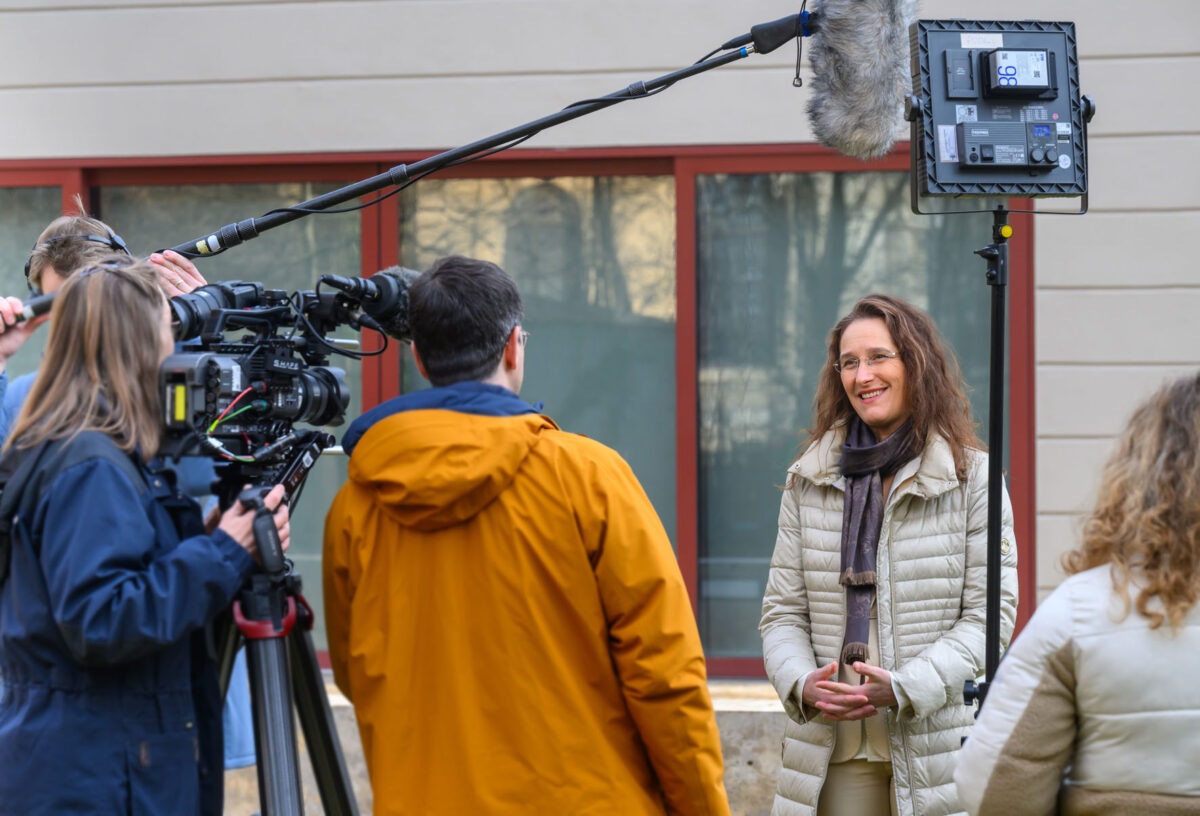
Water management technologies are of central importance as the main determining element and foundation of all food supply scenarios. However, measures to improve soil quality and alternative sources of raw materials also play a role as building blocks for resilient food strategies.
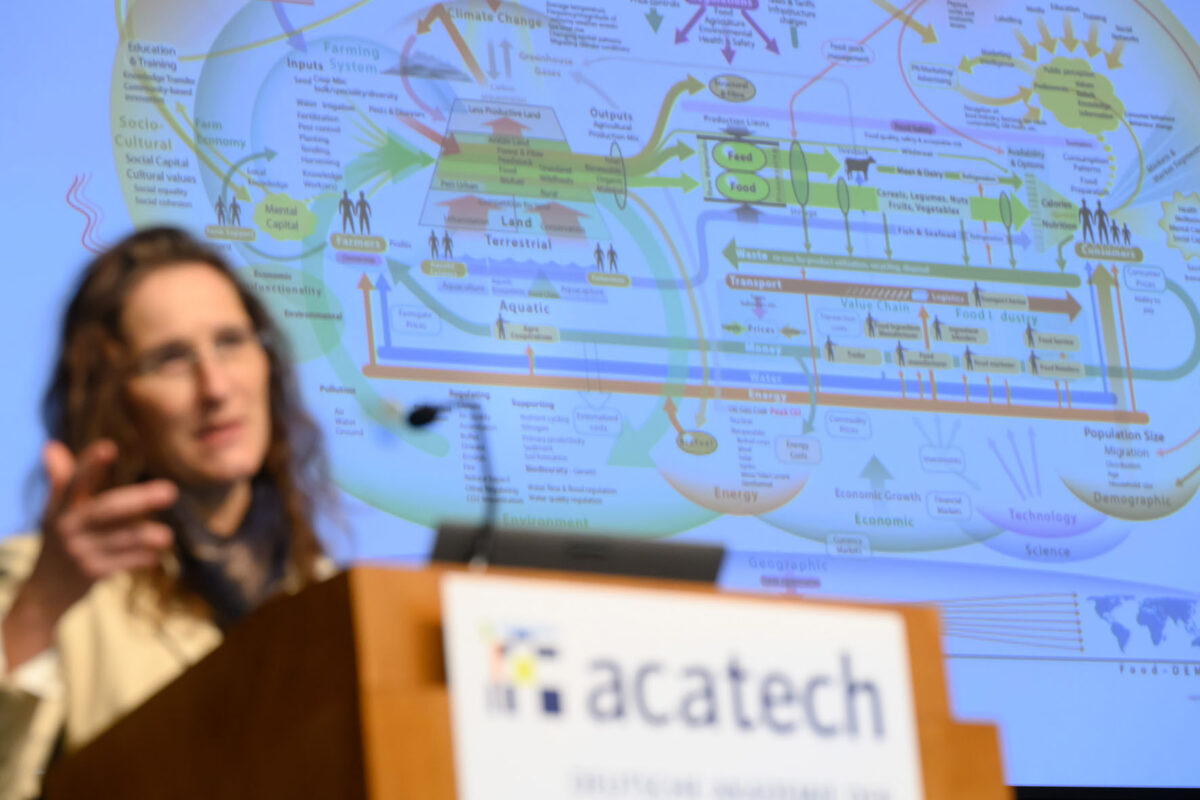
Overall, a new phase of strategy processes is needed for the food industry, according to Andrea Büttner. The key question is what the stakeholders need to develop joint strategies for – across institutions and ministries.
“It is sustainable to think in terms of innovations for food”
Thomas Becker, Professor of Brewing and Beverage Technology at the Technical University of Munich, placed food in a materials science context. A major role was played by how the texture of future foods can be modelled as authentically as possible on natural examples. New technological processes such as 3D printing or electro-spinning can be used to create fibrillar structures that resemble those of a steak, for example.
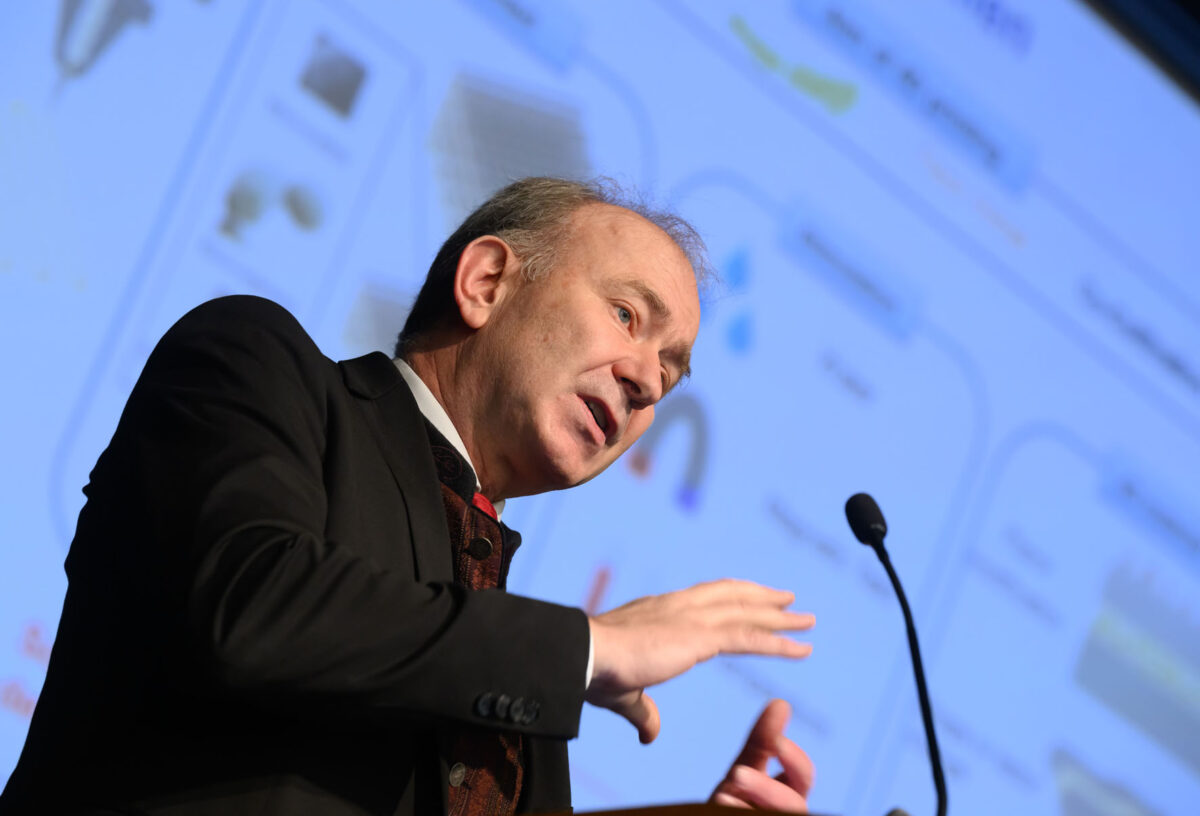
Overall, he spoke in favour of a general expansion of openness to innovation in order to master the challenges of a future-oriented, resilient food system. After all, food resilience is also synonymous with civil peace, said Thomas Becker. “Let’s research food and technology,” was his appeal for the acceptance of food innovations and new production processes.
Shaping initiatives together
Jürgen Fleischer, Professor at the Karlsruhe Institute of Technology, KIT, summarised in his interim conclusion that it is important to include the various perspectives from politics, science and business. The next step would be to launch joint initiatives that could have a strong impact on the food systems sector.
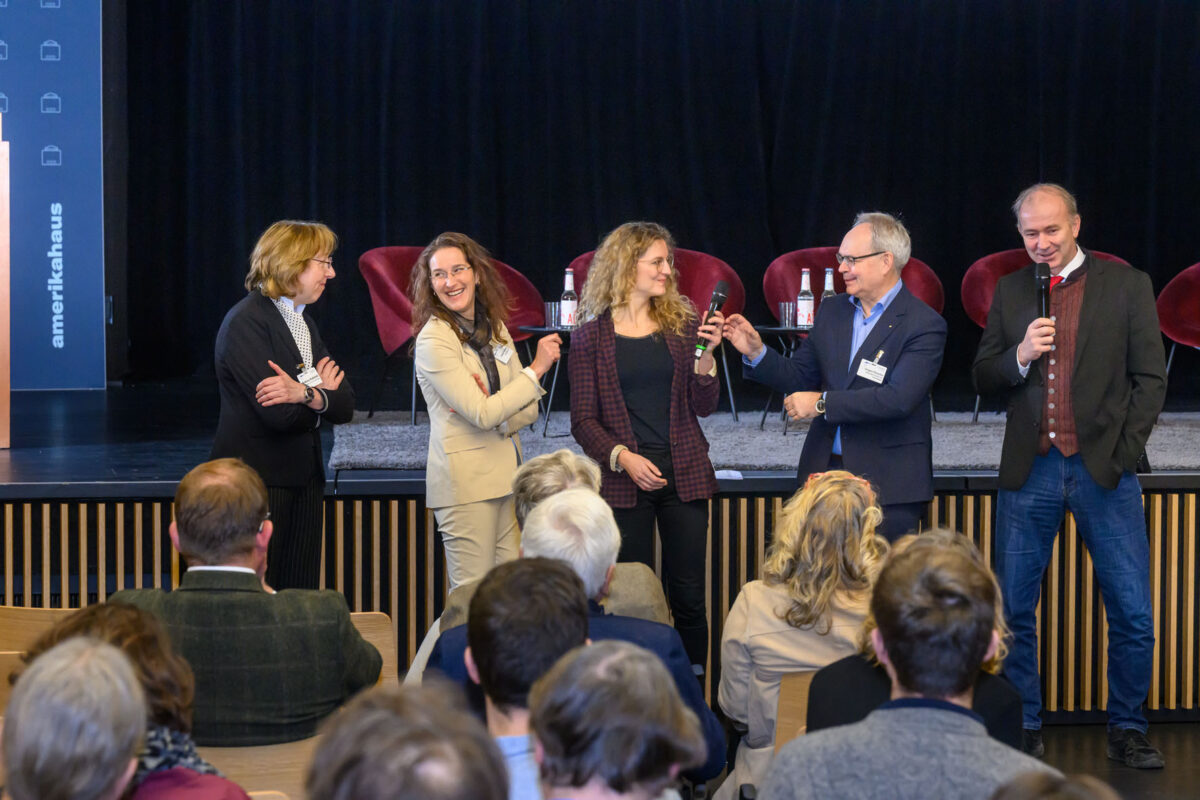
True costs – and what about the true benefits?
Justus Wesseler, Professor of Agricultural Economics and Rural Policy at Wageningen University & Research, showed the extent to which food should actually be priced when production-related follow-up costs for the environment and society are taken into account. For conventional products, this ranged from +28% for plant-based foods to +196% for animal-based foods; for organically produced products, this range shrinks to +6% (plant-based) to +86% (animal-based).
However, the challenge of calculating true costs is big, according to Justus Wesseler. In addition to differing views on sustainability, the costs of adaptation in food production and fixed costs, he also raised the issue of transparency. This is because a common mistake when dealing with true costs is that the true benefits are often not included in the price.
Affordable and healthy – the social sustainability factor
Jutta Roosen, Professor of Marketing and Consumer Research at the Technical University of Munich (TUM), focussed on the social dimension of sustainability. All factors of a healthy food environment must be included and eating habits must also be taken into account in the transformation process.
There was clear potential for improvement in the individual factors of a healthy food environment – which has a major influence on nutritional quality. For example, the implementation of measures for a healthy food environment in Germany still has room for improvement in many areas compared to other European countries.
Reducing greenhouse gas emissions in agriculture
Matthias Wiemann from DSM-Firmenich had an illustrative example from the industry of innovations to increase sustainability in agriculture. His approach: a feed additive that reduces methane emissions from cows.
According to Matthias Wiemann, this could reduce methane emissions from cows by 30% and from beef cattle by as much as 45%. He put the additional burden per litre of milk produced at one cent per litre of milk.
“It is important that we are clear and quick at the legislative level.”
Matthias Hobbie, GEA Group, provided insights into the area of New Food and the importance of openness to innovation for shaping a future-orientated food system. Innovations must be promoted in this country – to this end, it is important to include trends and, above all, consumers, said Matthias Hobbie.
Although the technological challenges in the New Food sector are great, Matthias Hobbie believes that the legal framework is even more important. These must be clear and transparent. This is the only way to encourage investments from companies and institutes that enable the creative work of domestic start-ups.
Interact and discuss at topic islands and panel discussion
Afterwards, the participants were able to deepen their impressions from the keynote speeches. To this end, they engaged in a direct dialogue with the speakers at interactive topic islands on the areas of ecological, social and economic sustainability.
In the subsequent panel discussion moderated by Martina Schraudner (TU Berlin / Scientific Director Fraunhofer CeRRI), the findings were then discussed in dialogue with all participants. Despite the wide range of topics and possible solutions, it became clear that consumers must be clearly placed at the centre when it comes to moving towards a sustainable and resilient food system.
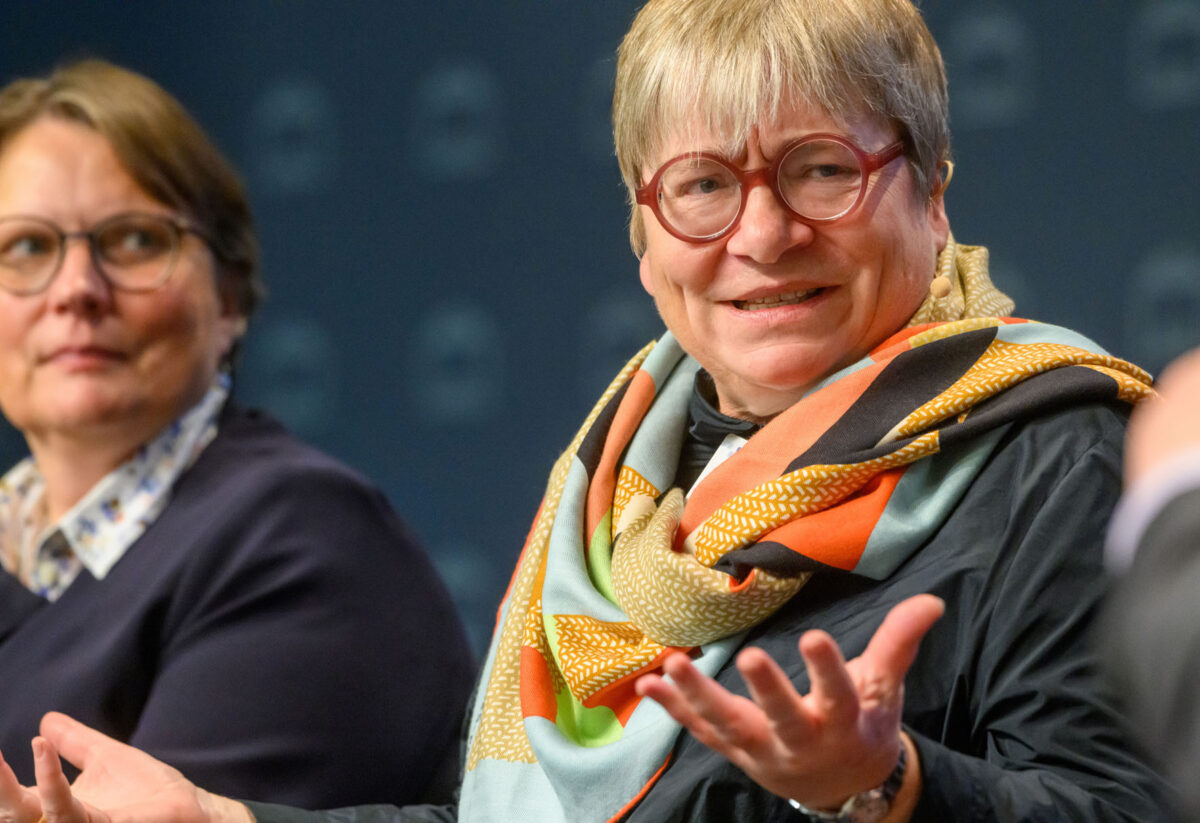
Another finding is that the technological sciences can play a central role in supporting the food system in its transformation towards greater sustainability, resilience and sovereignty. acatech is taking the signal from the Food Systems conference to become more involved in this socially and economically important topic area in the future by providing science-based advice.


